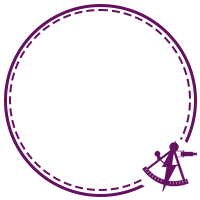Stardate 2398.6
With three years of active Starfleet service under his belt, Lieutenant J.G. Tristan Hawthorne was hitting his stride as Head of Linguistics aboard a deep space explorer, the Opportunity, commanded by Commodore Elizabeth Hayden. His training in linguistic anthropology was geared towards understanding things about cultures through their language, so it was a fulfilling challenge to interact with actual aliens in live negotiations. They’d just finished a challenging first contact mission with a species that used simultaneous verbal and manual communication, and the lieutenant was finishing his notes in the Opportunity’s linguistics lab. In the corner of his mind, he heard the door to the lab open, but he didn’t look up.
“I would have thought you’d be celebrating your success in the bar tonight,” came the distinctive voice of Commodore Hayden.
Hawthorne was startled, and he leaped out of his chair to come to a respectful pose for his commanding officer.
“At ease, Lieutenant,” she said with a kind smile. “I appreciate your diligence, but you’ve earned some downtime.”
“Thank you, ma’am,” Hawthorne replied. “I’m not very good at parties, and it’s quiet down here now, so it seemed like a good time to finish annotating my notes.”
Hayden nodded and went to lean against one of the analysis tables, crossing her arms as she looked at Hawthorne.
“You may already know this, but I was a science officer in another life. A botanist,” Hayden said. “I was impressed with your performance during the negotiations. You used the evidence we had available to us to navigate a tricky communication task without much time to develop a theory or run through simulations.”
“Thank you, ma’am. It was… invigorating, as my work is usually more second or third-hand analysis,” Hawthorne said, unsure why the Commodore had come down to see him. “I did know that about you—that you were a scientist. I’ve seen some of your papers in the database.”
“Where do you see yourself in ten years, Mr. Hawthorne?” Hayden asked.
Hawthorne froze. He didn’t know how to answer that question. He liked being a science officer, and he wanted to be a really good science officer, but his ambitions were predominantly intellectual, not professional. In ten years, he’d be in his mid-thirties, which seemed so far away.
“Ideally, I’d like to continue to serve on a starship like this one. I’d hope that in ten years, I’d at least be a senior officer,” Hawthorne said, realizing that he lacked any confidence as he said that.
“It wasn’t meant to be a trick question,” Hayden said, smiling again. “I see a lot of potential in you. But I wanted to give you some advice: if you want to stay competitive with your peers, you must come out of the lab more often. Go on away missions. And, yes, socialize. Your commanding officers need to see your leadership potential, not just your technical acumen,” the commodore said.
Hawthorne’s heart sunk a little bit. He rarely went on away missions because there was often no field work suitable for a linguistic anthropologist to do. He kept to himself and focused on his studies.
“Yes, ma’am,” he said.
“I’m putting you on one of the survey teams for our upcoming mission to the Zeta Asteropes system as a thank you for your good work during the negotiations,” Hayden said. “I want to give you a chance to show Commander Lancaster what you can do.”
“I… thank you, ma’am,” Hawthorne said. He didn’t know why she was looking out for him, but a smile spread across his face as he thought about the chance to stand out from the crowd. He cleared his throat. “And, um, perhaps I’ll put a pin in these notes for the evening.”
“Officer thinking, Mr. Hawthorne. Carry on,” Hayden said, returning the smile and leaving Hawthorne alone in the lab.
Two weeks later, Hawthorne had his utility belt, phaser, and tricorder ready and a full-on scientific sample kit slung over his shoulder. He walked up the boarding ramp of the Type-11 shuttle his team would use for the mission to Zeta Asteropes and stowed his gear in the cargo compartment. He walked into the cockpit and was floored to see, once again, Lieutenant J.G. Paulo Costa sitting in the pilot’s seat.
“You,” they said in unison, scowling at one another.
⁂
Stardate 2401.4
Three years on and six years into their service together, Hawthorne and Costa now found themselves in a similar situation: together on a small vessel for a mission. However, this mission was much more important than a simple planetary survey. After pulling out of the nebula to inform the Arcturus that they had located the Farpoint Cnidarian and an unknown alien vessel within the planetary nursery, the Seginus Flyer had been sent back inside to monitor the situation until the mothership could arrive.
With nearly all of their systems turned off, they were unlikely to be detected, but it still made it impossible for Hawthorne to sleep. He was staring up from a field mattress to the ceiling of the aft compartment in a row with the other three men assigned to the team. While they rested, the computer was recording everything the cnidarian did. Hawthorne wondered what their chances of success were: the alien vessel controlling the creature looked incredibly tough, and the creature itself would be a tremendous threat on its own.
In any case, a sense of impending dread wasn’t all that was keeping Hawthorne awake. Their team dynamic was strange. Lieutenant Fox seemed to drift between being bored by their assignment and resentful of being taken away from his computer session, all while hunkering down with his snake leaf vape and his portable computer; Hawthorne was glad that he was fully asleep and thus not annoying anyone. Meanwhile, Lieutenant Andretti seemed nice enough but also very closed off and, frankly, boring—not someone Hawthorne really could hold a conversation with.
That left Paulo Costa. They were still bickering, but it was actually somewhat entertaining. With Fox, he got the sense that his fellow lieutenant was actually either socially inept or trying to cause offense, which made Costa’s teasing seem a lot more pleasant by comparison. Hawthorne rolled over on his side and saw Costa’s bare torso faintly lit by the blue glow of the computer equipment in the room. His stomach was rising and falling gently, and Hawthorne felt frustrated that someone so annoying could also be so ripped.
Knowing he’d never be able to sleep, Hawthorne slipped off his mattress and quietly stepped across the aft compartment to enter the cockpit. It was colder in there because of the large viewports, so he buried his hands inside the pocket of his science division blue hoodie. Walking down to the flight deck, he found Costa’s red-trimmed field uniform draped over the back of the seat. He slipped into the seat and pulled his knees up to his chest to curl up comfortably.
“Computer, status update,” he said, glancing at the displays around the flight controls.
“The situation is unchanged,” the computer replied.
From their position, Hawthorne couldn’t see the cnidarian or the alien vessel. The runabout had stopped just at the edge of its passive sensor range so they could minimize their chances of being discovered. Now, with most systems offline, they were waiting in the cold and the dark. As Hawthorne got comfortable, he inadvertently rubbed his face on Costa’s jacket. It was artificial leather and shouldn’t have a scent, but it smelled warm and woody from whatever scent the pilot had been wearing—not unpleasant at all. One of the burdens of being attracted to men was that sometimes the most attractive ones were also the most infuriating; having a crush on Costa was one of Hawthorne’s greatest frustrations with himself.
As Hawthorne was brooding about life’s little ironies, he drifted off. He was nearly asleep in the pilot’s seat when he heard the aft hatch slide open, bringing him back to being fully awake. He turned around in the chair to see Costa moving across the forward compartment to stand at the top of the ramp down into the cockpit with his hands on the two railings, blocking Hawthorne’s possible escape route and leaving him feeling like he’d got his hand caught in the cookie jar.
“I wasn’t touching anything,” Hawthorne blurted out.
Costa chuckled. “I didn’t say you were. I just noticed you were gone and came out to check on you,” he said, coming all the way down the ramp to sit on the jumpseat at the secondary console next to the helm; their knees were almost touching. Costa hadn’t bothered to grab his shirt on his way out of the aft compartment. “Not everything I say to you is an accusation.”
“I… You’re right,” Hawthorne managed. “Your concern is noted. I couldn’t sleep, so I came out here to ask the computer for a status update. Nothing’s changed out there.”
“I can usually sleep through anything, but missions keep me too amped up,” Costa offered. “I’m not great at waiting for things to happen.”
“Paulo, I am absolutely shocked to hear that you’re impatient—it’s not like you’ve ever pulled me into an unexplored cave on New Java,” Hawthorne quipped.
Costa rolled his eyes. “That was one time and you need to let it go.”

 Bravo Fleet
Bravo Fleet










